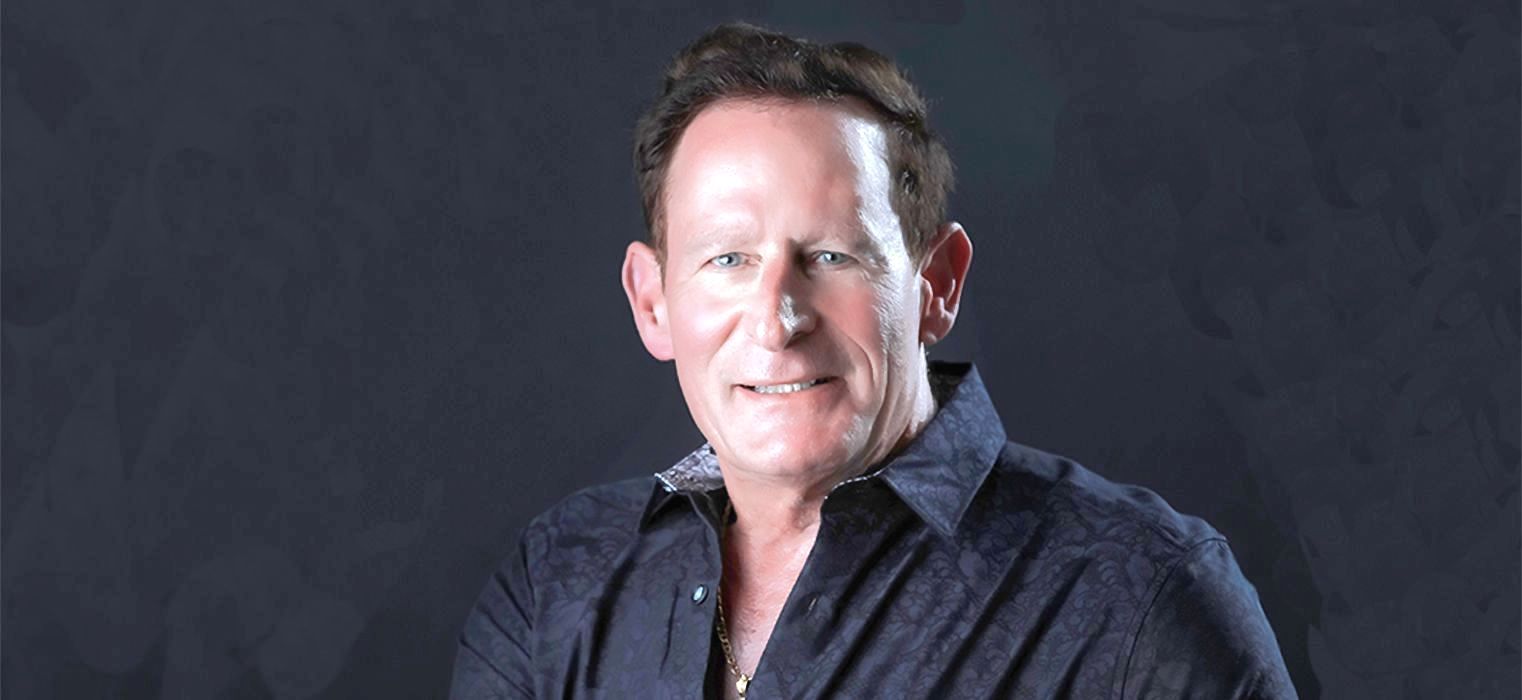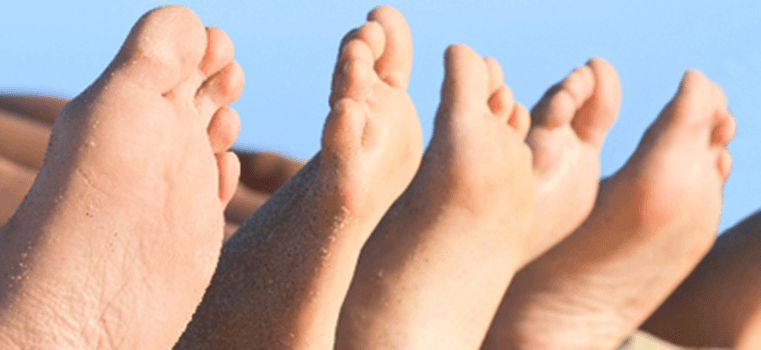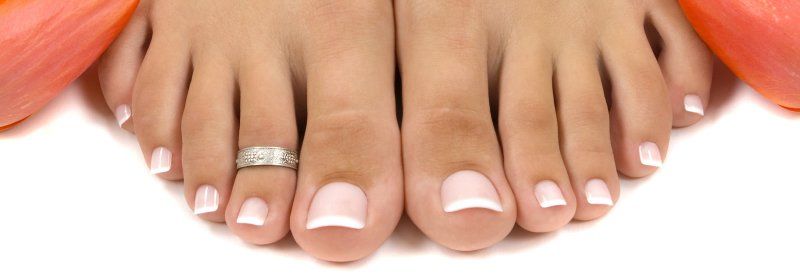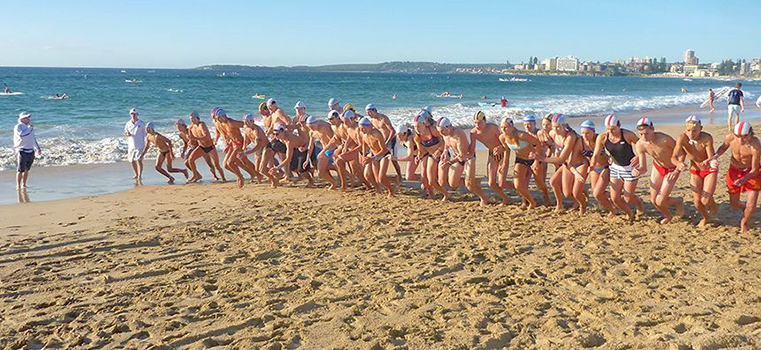WOUND / ULCER HEALING
Woundcare Table of Contents
At OC Center for Wound Healing & Foot Care, Dr. Mark Reed provides expert, patient-centered care for chronic non-healing wounds and a wide range of foot and ankle conditions. With 30+ years of experience, board certification in surgery, and Fellowship in Wound Care, Dr. Reed delivers innovative, evidence-based treatments to help patients heal faster and regain mobility.
✅ Advanced, personalized treatments
✅ Healing time nearly 50% faster than the national average
✅ Comprehensive care for foot & ankle conditions
Dr. Reed’s expertise ensures
optimal recovery, allowing patients to get back to life
sooner and stronger.
Why Choose Us?
✅ Comprehensive Six Factor Wound Healing Protocol
With over 30 years of expertise, Dr. Mark Reed has developed a comprehensive Six-Factor Wound Healing Treatment Protocol—a proven system for healing acute and chronic non-healing wounds. By addressing these key factors, wounds and ulcers can effectively heal and are resolved with the goal of proventing wound reoccurance.
✅ Comprehensive and Innovative Wound Healing Technologies
Dr. Reed utilizes cutting-edge therapies to accelerate healing and improve patient outcomes:
✔ Synthetic Skin Substitute Grafts – Promotes tissue regeneration.
✔ Ultramist® Mist Ultrasound Stimulation – Enhances wound healing through painless ultrasound therapy.
✔ Nitroglycerin Vascular Vasodilation Therapy – Improves blood flow for faster recovery.
✔ Advanced Skin Stimulators – Boosts cell growth and repair.
✔ Hyperbaric Oxygen Therapy – Increases oxygen supply to the wound for enhanced healing.
✔ Peripheral Vascular Angioplasty – Restores proper circulation to aid tissue repair.
✔ Custom orthotics and bracing for biomechanical supportOur Services
✅ Comprehensive Healing Approach
Beyond advanced technology, Dr. Reed’s treatment strategy includes:
✔ Daily Wound Care – Prevents infection and supports healing.
✔ Weekly Debridement – Stimulates new tissue growth for faster recovery.
✔ Holistic Healing Factors – Addressing circulation, pressure relief, nutrition and metabolic balance.
By combining
state-of-the-art treatments with
proven wound care protocols, Dr. Reed helps patients
heal faster, reduce complications, and regain mobility.
Dr. Reed's SIX WOUND HEALING FACTORS
1. Diabetic Glucose Control
Stable blood sugar levels are critical for wound healing. High glucose causes arteriole narrowing, restricting oxygen and antibiotic delivery to tissues. This leads to poor circulation, weakened immune response, and stalled healing. Proper glucose control prevents these complications and promotes faster recovery.
2. Wound Microcirculation & Vascular Health
Healthy blood flow is essential for healing. Many diabetic patients suffer from Peripheral Arterial Disease (PAD), restricting circulation. Dr. Reed uses advanced capillary refill testing and nitroglycerin patches to enhance microcirculation and reverse diabetic complications such as neuropathy.
3. Wound Tissue Growth Stimulation
Regular debridement (removal of dead tissue) and proper wound care stimulate new cell growth. Weekly treatments by Dr. Reed ensure:
✔ Removal of non-viable tissue
✔ Elimination of bacterial biofilm
✔ Stimulation of platelet-derived growth factors to support healing
4. Infection Control & Antibiotic Management
Targeted antibiotic therapy is key to fighting infection. Dr. Reed:
✔ Uses tissue and bone cultures (not surface swabs) for accurate diagnosis
✔ Prescribes customized antibiotic treatments to combat resistant bacterial strains
✔ Ensures proper white blood cell migration to fight infection effectively
5. Pressure Off-Loading & Wound Protection
Pressure relief is vital for wound healing. Continuous pressure restricts blood flow, oxygen delivery, and immune response. Dr. Reed provides customized solutions such as:
✔ Diabetic shoes, braces, and insoles
✔ Knee scooters or wheelchairs for non-weight bearing
✔ Surgical corrections for foot stability when necessary
6. Nutrition & Metabolic Supplementation
Diabetic patients often suffer from nutritional deficiencies, which hinder healing. Key concerns include:
✔ Low albumin levels (affecting circulation, enzyme function, and tissue repair)
✔ Vitamin B1 (Thiamin) & B12 (Cobalamin) deficiencies, leading to nerve damage and poor oxygenation
✔ Personalized dietary plans to stabilize glucose and optimize healing
✔ Intermittent Fasting to Improve Diabetic Control
Innovative Approaches for Diabetic Wound Healing
Dr. Reed has successfully guided diabetic patients through an intermittent fasting protocol (16/8 method), which has significantly reduced insulin dependency and improved HbA1C levels. Patients receive detailed instructions on dietary strategies and supplement recommendations to support their metabolic health.
With a patient-centered approach, cutting-edge treatments, and a proven methodology, Dr. Reed is committed to delivering
exceptional wound care.
Take control of your healing today.
click here!
NATIONAL AVERAGE TO HEAL AN ULCER
The national average for a diabetic ulcer to heal under podiatric care is 20 weeks. However, Dr. Mark Reed routinely heals his patients in about half that time by utilizing cutting-edge treatments tailored to each individual’s needs.
Dr. Reed integrates
advanced technologies such as:
✅
Synthetic Skin Substitute Grafts for enhanced wound coverage
✅
Ultramist® Ultrasound Stimulation to accelerate healing
✅
Nitroglycerin Therapy for improved vascular circulation
✅
Advanced Skin Stimulators to promote tissue regeneration
✅
Hyperbaric Oxygen Therapy to boost oxygen delivery to wounds
✅
Peripheral Vascular Angioplasty for improved blood flow
These advanced therapies are combined with Dr. Reed’s Six-Point Wound Healing Protocol, which includes daily wound care, weekly debridement, and comprehensive healing strategies to ensure optimal recovery.
A TEAM APPROACH TO WOUND HEALING
The key to turning around a non-healing diabetic wound is a comprehensive examination to uncover underlying medical conditions that may be preventing proper healing. Many patients with chronic wounds also suffer from systemic issues such as:
✅
Peripheral Vascular Disease – Poor circulation affecting wound oxygenation
✅
Immune Compromise – Reduced ability to fight infections
✅
Anemia & Nutritional Deficiencies – Lack of essential nutrients for tissue repair
✅
Diabetes Instability – Uncontrolled glucose levels delaying healing
✅
Incorrectly Identified Infections – Inaccurate antibiotic use prolonging recovery
✅
Failure to Off-Load Pressure – Continued pressure causing recurrent ulceration
With over 30 years of experience, Dr. Mark Reed works alongside a team of specialists to address these challenges, collaborating with Vascular Surgeons, Vein Specialists, Interventional Radiologists, Infectious Disease Experts, Endocrinologists, and Diabetologists to resolve underlying factors and accelerate wound healing.
MODERN ADVANCES TO PREVENT DIABETIC COMPLICATIONS
Modern medicine has made significant advancements in diabetes management, allowing for better monitoring, control, and even remission with the right combination of medication, nutrition, and specialized diabetic footwear. These improvements help prevent microvascular ischemia and other diabetic complications, reducing the risk of chronic wounds.
Cutting-Edge Treatments for Diabetic Ulcers
Today’s advanced wound care options provide faster and more effective healing than ever before. These include:
✅ Nitroglycerin Therapy – Reverses microvascular ischemia to restore blood flow
✅ Ultramist® Ultrasound Therapy – Stimulates tissue growth and accelerates healing
✅ Skin Substitute Grafts – Provides essential coverage for ulcer healing
✅ Negative Pressure Therapy – Enhances granulation and tissue regeneration
Surgical Solutions for Chronic Wounds
For some patients, surgery is the key to lasting wound healing. Two proven surgical procedures include:
🔹 Floating Metatarsal Head Osteotomies – A minimally invasive surgery performed under local anesthesia that rebalances foot pressure, allowing chronic ulcers to heal while the patient remains weight-bearing.
🔹 Percutaneous Achilles Lengthening – For patients with transmetatarsal amputations, this procedure helps rebalance forefoot pressure, significantly improving wound healing and preventing future complications.
With the right approach, diabetic wounds can heal, and complications can be prevented.
Intermittent Fasting to Control Diabetes
For over 30 years, Dr. Mark Reed has helped heal and prevent diabetic ulcers and many different types of wounds while improving insulin management through an intermittent fasting 16/8 protocol. Patients with Type 1 and Type 2 diabetes have experienced:
✔ Reduced daily insulin requirements (from 120+ units to below 30)
✔ Lower HbA1C levels (from 11-12 to below 7)
Nutritional Support for Diabetic Patients
Proper nutritional supplementation should be managed by a healthcare provider to avoid medication interactions. Recommended brands include Costco Kirkland and Centrum, with dosages kept within the recommended daily allowance (RDA)—avoiding megadose vitamins that may strain the liver. Glucose monitoring and insulin adjustments are essential, and patients receive detailed guidance on fasting and nutritional supplements while working closely with their Internist or Diabetologist.
Research shows that intermittent fasting can be a safe and effective strategy for managing Type 1 and Type 2 diabetes, leading to weight loss, reduced insulin needs, and improved metabolic function. Studies indicate that, with proper medication adjustments and blood glucose monitoring, intermittent fasting can:
✔ Enhance insulin sensitivity and reduce insulin resistance
✔ Lower blood pressure and oxidative stress
✔ Increase hemoglobin levels and oxygen-carrying capacity
✔ Improve overall metabolic function
With medical supervision, intermittent fasting can be a powerful tool for diabetes control and overall health improvement. Always consult a healthcare provider before making dietary changes.Intermittent fasting for patients
Intermittent Fasting & Diabetes: Research-Backed Benefits
Studies show that intermittent fasting can significantly improve insulin sensitivity, blood pressure, and oxidative stress—even without weight loss (Sutton et al., 2018). With proper medication adjustments and glucose monitoring, intermittent fasting can be safely integrated into diabetes management (Grajower et al., 2019).
Research has also found that
fasting increases hemoglobin oxygen-carrying capacity, improving
metabolic function and reducing insulin resistance (Horne et al., 2013). These findings highlight intermittent fasting as a
powerful tool for controlling diabetes and enhancing overall health.
Turning Around Non-Healing Diabetic Wounds
Turning a chronic non-healing diabetic wound to a healing wound requires a comprehensive evaluation to identify and address the underlying causes. Many chronic wounds are linked to systemic conditions such as:
✔ Peripheral Vascular Disease – Poor circulation causing a chronic wound.
✔ Weakened Immune System – Reduces the body’s ability to fight infection.
✔ Anemia & Nutritional Deficiencies – Limits oxygen and essential nutrients needed for tissue repair.
✔ Unstable Diabetic Control – Fluctuating blood sugar impairs healing.
✔ Incorrectly Identified Infections – Delayed or ineffective treatment.
✔ Failure to Off-Load Pressure – Continuous stress on the ulcer site prevents closure.
With
30+ years of experience,
Dr. Reed collaborates with top local specialists to resolve these barriers, working closely with:
✔ Vascular Surgeons & Vein Specialists – Restoring proper blood flow.
✔ Interventional Radiologists – Minimally invasive procedures for improved circulation.
✔ Infectious Disease Specialists – Targeting hard-to-treat infections.
✔ Endocrinologists & Diabetologists – Optimizing blood sugar control.
By addressing both the wound and its root causes, Dr. Reed provides a faster, more effective healing process—helping patients regain mobility and improve their quality of life.
THE 30 DAY ASSESSMENT
A key benchmark in Dr. Mark Reed’s wound care protocol is a 50% reduction in wound size within the first 30 days of treatment. If this milestone is not met, a comprehensive reassessment is conducted to identify and address any underlying factors interfering with healing. This proactive approach ensures that every wound continues to progress toward full recovery.
While national statistics indicate that diabetic wounds typically take 20 weeks to heal, Dr. Reed’s advanced treatment methods reduce healing time to just 6 to 10 weeks for most patients. His commitment to ongoing evaluation and treatment adjustments ensures optimal healing outcomes.
How Microcirculation Works During Walking
The capillary refill process plays a crucial role in keeping the skin of the feet oxygenated:
During walking, foot oxygenation follows a cyclical pattern:
✔ Foot Off the Ground → Capillaries refill, supplying oxygen.
✔ Foot on the Ground → Pressure blanches the skin, momentarily reducing oxygen flow.
This natural process is disrupted in diabetes, as impaired microcirculation delays oxygen replenishment, increasing the risk of ulcers.
The Four Phases of Wound Healing & Diabetes Impact
1. Hemostasis (Immediate Response)
🔹 Begins at injury → Platelets clot and blood vessels constrict to stop bleeding.
🔹 Platelets release growth factors that initiate healing.
2. Inflammatory Phase (0–4 Days)
🔹 White blood cells (Neutrophils, Macrophages, Leukocytes) rush to the wound to:
✔ Fight infection by killing bacteria
✔ Clear damaged tissue
🔹 These cells release secondary growth factors, attracting more immune cells to start tissue repair.
3. Proliferative Phase (4–14 Days)
🔹 Fibroblasts arrive to:
✔ Produce new collagen
✔ Create new blood vessels
✔ Repair damaged epithelial tissue
🔹 Osteoblasts build new bone and chondrocytes form scar cartilage.
4. Remodeling Phase (6 Months – 1 Year)
🔹 Fibroblasts strengthen tissue by increasing collagen production.
🔹 Osteoclasts & osteoblasts reshape bone under weight-bearing forces.
How Diabetes Disrupts Wound Healing
In diabetes mellitus, high blood sugar (hyperglycemia) causes protein glycation, leading to:
❌ Impaired oxygen delivery to tissues
❌ Neutrophils unable to exit blood vessels → Delayed infection response
❌ Reduced macrophage activity → Slower release of growth factors
❌ Poor capillary formation → Weakened connective & granulation tissue
💡
Clinical Insight: Targeting
microvascular health and improving
oxygenation (e.g., vasodilators, optimized glucose control) can significantly enhance
wound healing outcomes in diabetic patients.
📖 Reference: Okonkwo UA, DiPietro LA. “Diabetes and Wound Angiogenesis.” Int J Mol Sci. 2017 Jul 3;18(7):1419.
Reversing Diabetic Microvascular Ischemia
Dr. Reed utilizes medications that improve microcirculation, including:
🔹 Nitroglycerin Therapy → Dilates small arteries, reversing glycation-induced ischemia.
🔹 Sildenafil & Tadalafil → Increase capillary oxygenation and circulation.
Long-term use of Nitroglycerin (up to a year) has been shown to:
✔ Reverse neuropathy
✔ Heal retinopathy
✔ Improve kidney function
By restoring oxygen flow to the feet, these treatments reduce ulcer risk, improve healing, and help prevent severe diabetic complications.
Schedule a consultation with Dr. Reed today to assess your microcirculation health and start a personalized treatment plan!
Gangrene & Diabetes: Risks, Symptoms, and Treatment
Gangrene occurs when there is a loss of blood supply to an area of skin, often due to poor circulation or bacterial infection. It is most common in diabetic patients with circulatory issues in the feet and toes. A sudden onset of foot pain, cold skin, and color changes may indicate a critical blockage of blood flow, requiring immediate medical attention.
Diabetic neuropathy further increases the risk by reducing pain sensation, meaning injuries like ingrown toenails or minor cuts can go unnoticed, leading to infection, gangrene, and potential amputation.
Types of Gangrene & Treatment
1. Dry Gangrene (Non-Infected)
• Assessment: A Wound Care Specialist evaluates the condition with X-ray or MRI to rule out gas gangrene.
• Treatment: Often managed with povidone-iodine desiccants to keep tissue infection-free until it naturally sloughs off.
2. Wet Gangrene (Infected) & Gas Gangrene
• Signs: Severe redness, swelling, pus, fever, weakness, and a rapidly spreading infection. Gas gangrene can develop, caused by flesh-eating bacteria like Hemolytic Streptococcus, which has a 94% mortality rate if untreated.
• Treatment: Requires immediate surgery to remove infected tissue, IV antibiotics, hyperbaric oxygen therapy, and, in severe cases, bypass surgery to restore circulation.
Urgency of Treatment
Wet or gas gangrene is a life-threatening emergency. Without immediate medical intervention, it can lead to amputation or death. Early detection, proper wound care, and circulation assessments are crucial to prevent severe complications.
DISCLAIMER: MATERIAL ON THIS SITE IS BEING PROVIDED FOR EDUCATIONAL AND INFORMATION PURPOSES AND IS NOT MEANT TO REPLACE THE DIAGNOSIS OR CARE PROVIDED BY YOUR OWN MEDICAL PROFESSIONAL. This information should not be used for diagnosing or treating a health problem or disease or prescribing any medication. Visit a health care professional to proceed with any treatment for a health problem.New Paragraph










